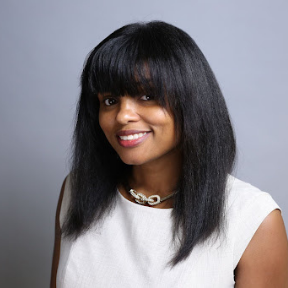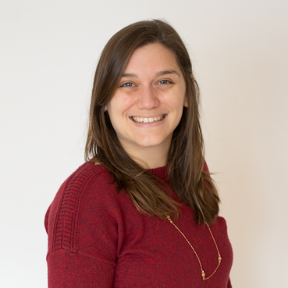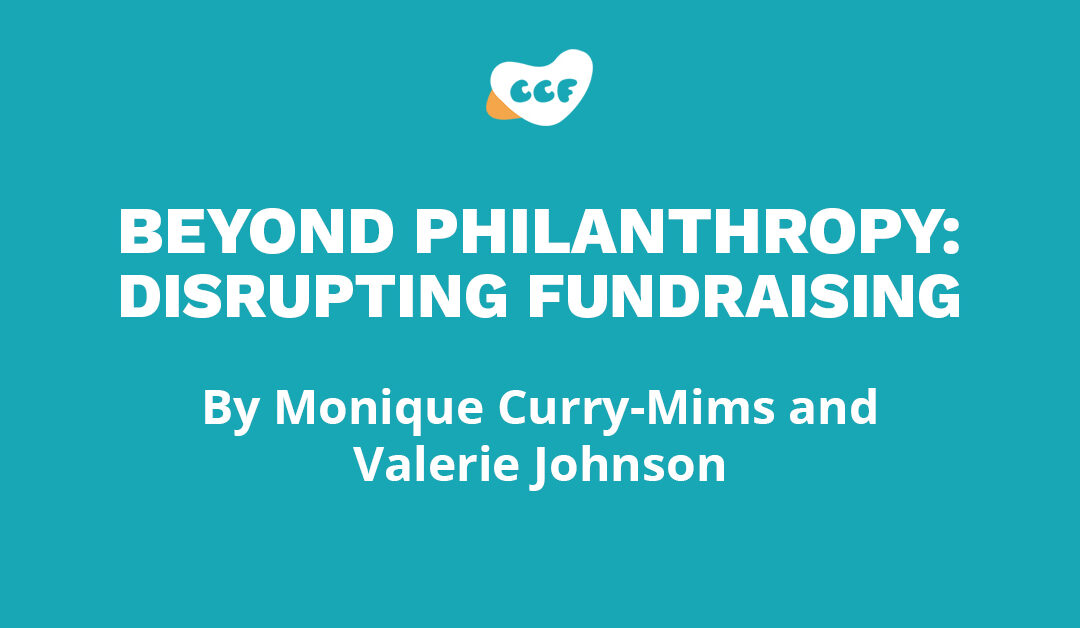By Monique Curry-Mims and Valerie Johnson, co-hosts of Beyond Philanthropy Podcast
About the podcast episode
In this episode, Monique and Valerie discuss the various aspects of Fundraising, how to move the practice forward, how to be more community-centric in your efforts, and how to educate donors throughout the process.
View the accessible text-only version.
About Beyond Philanthropy
Beyond Philanthropy is a podcast about how we can move beyond traditional philanthropy from co-hosts Monique Curry-Mims & Valerie Johnson. This season, each monthly episode examines systemic change and how to be disruptive in your philanthropy practice, with a mix of episodes featuring our co-hosts and episodes featuring guests from across the country.

Monique Curry-Mims
Monique Curry-Mims has over 15 years of business and leadership experience in both the nonprofit and for-profit sectors. As Principal of Civic Capital Consulting, an international social impact consulting firm, Monique delivers innovative strategies that help organizations meet their mission and goals, education services that empower solutions and equity, and funding to help communities working on the ground be part of the change they need. To further change impact, Monique serves as a steering committee member of Philadelphia Black Giving Circle, Trustee and the Allocations Chair of Union Benevolent Association, and a Committee Member of AFP Global’s Government Relations Committee. Additionally, Monique serves as Founder and Convener of PHLanthropy Week and co-host of Beyond Philanthropy alongside Valerie Johnson.

Valerie Johnson
Valerie Johnson joined Pathways to Housing PA as Director of Institutional Advancement in 2018, and was promoted to VP of Advancement and Special Projects in 2021. She co-hosts a podcast, Beyond Philanthropy, alongside Monique Curry-Mims. She was also the Director of Advancement for Council for Relationships and worked as a fundraiser for Valley Youth House and the American Association for Cancer Research. Valerie, a Certified Fundraising Executive, holds a Bachelor’s degree in Marketing and an MBA from Drexel University. A member of the Association of Fundraising Professionals since 2012, she serves on the Greater Philadelphia Chapter’s Board of Directors as Vice President of Education and Professional Development. Valerie has been a featured speaker for the Pennsylvania Association of Nonprofit Organizations, NTEN, AFP GPC, and AFP Brandywine, and contributes to Generocity. You can find her on Twitter and Instagram, where you’ll see plenty of running and baking content alongside her cats, Agador and Spartacus.
To tip Valerie and Monique for their work on their podcast, Venmo them at: @valer1ej
Discover more from CCF
Subscribe to get the latest posts sent to your email.


I learned about your podcast through a trainer in Seattle and started to listen right away. I was listening to your latest episode about how fundraising should not be quid pro quo as I was driving to attend the swankiest quid pro quo appreciation event for donors I have ever experienced. I was there because I have directed family foundation money to a local college program that redistributes the money to non profits through students participating in service learning who then they write competitive grants for the organizations they volunteered at. While I question whether this event had to be so sumptious, I did see that it was meaningful to the older women attending to be in community. I did note that some white male speakers shared stories of why they created scholarships in their own names with specific criteria, rather than just giving money to a general fund that could be distributed at the discretion of college staff.
Wonder why an incentive to prompt someone to get a monthly methadone injection is okay to prompt a behavior change, but free notecards to prompt someone to read about your mission in a letter, which is necessary for them to decide if they should invest in making their community/society better, through your organization, is not okay?
Tree planing for contributions is a cool idea.
When selling impact, and not programs, the outcome of a better, more just and fair, healthy and safe community or society, benefits everyone, not just the program participants. It benefits the $5, $500 , and $5k donors that live in your community. Sell that. When you sell the result of so many people receiving a needed service – not the services/programs themselves, you get better results.
It’s the difference between a community pitch and a charity pitch.